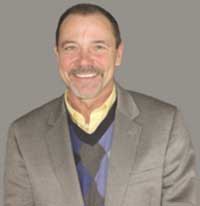Commentary: From Social Justice to Action to Ministry
 The United Church of Christ continues to shape the way politics, policy and ministry unfold. Driven by the belief that we are called by God to work for justice; our predecessors have been present in great movements for change. Examples include the formation of the Congregational Church of America to avoid religious persecution in Europe, movements for Abolition, Women’s Suffrage and Civil Rights, battles for reproductive justice and the right to be a conscientious objector, and recent efforts to achieve marriage equality.
The United Church of Christ continues to shape the way politics, policy and ministry unfold. Driven by the belief that we are called by God to work for justice; our predecessors have been present in great movements for change. Examples include the formation of the Congregational Church of America to avoid religious persecution in Europe, movements for Abolition, Women’s Suffrage and Civil Rights, battles for reproductive justice and the right to be a conscientious objector, and recent efforts to achieve marriage equality.
Likewise, our UCC related health and human service ministries, many of which exist under the umbrella of the UCC Council for Health and Human Service Ministries or CHHSM, were all created by visionary, forward thinking people who saw a void of service for those in need. The ideas that sparked these ministries came from local churches, associations and conferences. The social justice challenges of the day led to social action and the result was to create ministry for those who were in need. For example:
- In the 1840s, Louis Edward Nollau created hospitals, sanitariums and orphanages on the banks of the Mississippi River in response to the cholera outbreak.
- The Deaconess movement brought women into essential roles in health care delivery long before they could go to college.
- The Emmaus Homes courageously served the developmentally disabled more than 120 years ago during a time when their patients’ lives were ignored and discarded by society.
- Christian communities who care for the elderly were among the first in America to serve freed slaves.
This work continues today. More recently the wider church rallied around Back Bay Mission to rebuild following Hurricane Katrina; and UCC communities continue to provide safe and affordable housing to thousands of families, seniors and people with disabilities.
These are just a few examples of how we continue to transform the lives of those we serve through our healing ministries. But our work is not complete. I daresay it never will be, as we evolve and come to better understand the ongoing work needed around broader issues of injustice like immigration, racial justice, white privilege, police brutality, and economic inequality.
These systemic injustices are relevant and important. They drive us to action and ministry as servant leaders. As we work for Justice, our commitment to these issues as a community of faith will certainly have a healing and service component. Our support of those on the margins offers hope in a time of hopelessness and signal to the rest of the world of the core values of our Church. Let these expressions also be a promise to ourselves that we will act with faith, courage, compassion and a commitment to justice when we come to the next crossroad as a society.
Michael Readinger is President & CEO, Council for Health and Human Service Ministries.
View this and other columns on the UCC’s Witness for Justice page.
Donate to support Witness for Justice through the Neighbors in Need offering.
Click here to download the bulletin insert.
Related News
Springing Forward
Spring is in bloom in my neighborhood. Trees are budding. Flowers are starting to blossom. The...
Read MoreIt’s Time to Get into Good Trouble
On Tuesday, April 3, history was made by U.S. Senator Cory Booker who spoke on the Senate...
Read MoreReflections on a Christian Understanding of State and Government
The testimony of both the Hebrew and Christian scriptures as well as theological reflections...
Read More

